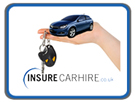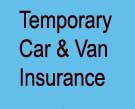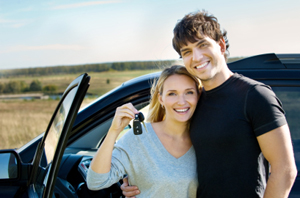 Driving in Australia
Driving in Australia
 Driving in Austria
Driving in Austria
 Driving in Belgium
Driving in Belgium
 Driving in Bulgaria
Driving in Bulgaria
 Driving in Canada
Driving in Canada
 Driving in Croatia
Driving in Croatia
 Driving in Cyprus
Driving in Cyprus
 Driving in The Czech Republic
Driving in The Czech Republic
 Driving in Denmark
Driving in Denmark
 Driving in England
Driving in England
 Driving
in Europe
(with
detailed country guides)
Driving
in Europe
(with
detailed country guides)
 Driving in Finland
Driving in Finland
 Driving in France and Corscia
Driving in France and Corscia
 Driving in Germany
Driving in Germany
 Driving in Gibraltar
Driving in Gibraltar
 Driving in Greece and the Greek
Islands
Driving in Greece and the Greek
Islands
 Driving in Holland
Driving in Holland
 Driving in Hungary
Driving in Hungary
 Driving in Iceland
Driving in Iceland
 Driving in Ireland
Driving in Ireland
 Driving
in Israel
Driving
in Israel
 Driving in Italy Sardinia and Sicily
Driving in Italy Sardinia and Sicily
 Driving
in Jordan
Driving
in Jordan
 Driving
in Lebanon
Driving
in Lebanon
 Driving
in Liechtenstein
Driving
in Liechtenstein
 Driving in Luxembourg
Driving in Luxembourg
 Driving in Malta and Gozo
Driving in Malta and Gozo
 Driving
in Mexico
Driving
in Mexico
 Driving in Monaco
Driving in Monaco
 Driving in The Netherlands
Driving in The Netherlands
 Driving in New Zealand
Driving in New Zealand
 Driving in Northern Ireland
Driving in Northern Ireland
 Driving in Norway
Driving in Norway
 Driving in Poland
Driving in Poland
 Driving in Portugal
Driving in Portugal
 Driving in Scotland
Driving in Scotland
 Driving in Slovenia
Driving in Slovenia
 Driving
in South Africa
Driving
in South Africa
 Driving in Spain The Balearrics and The
Canary Islands
Driving in Spain The Balearrics and The
Canary Islands
 Driving in Sweden
Driving in Sweden
 Driving in Switzerland
Driving in Switzerland
 Driving in Turkey
Driving in Turkey
 Driving
in United Arab Emirates UAE
Driving
in United Arab Emirates UAE
 Driving in The UK - England - Scotland - Wales
& Northern Ireland
Driving in The UK - England - Scotland - Wales
& Northern Ireland
 Driving in the USA
Driving in the USA
 Driving in Wales
Driving in Wales
In
addition:
 Driving
in Lebanon Like
many of the countries in the "Driving in
Guides", the editor of this website has either
driven in or has been a passenger. In
Lebanon a country visited in 2019, we do not have
a full page guide and this
information is expressed from a personal view
and experiences without showing any legal requirements
of the "rules of the road".
Driving
in Lebanon Like
many of the countries in the "Driving in
Guides", the editor of this website has either
driven in or has been a passenger. In
Lebanon a country visited in 2019, we do not have
a full page guide and this
information is expressed from a personal view
and experiences without showing any legal requirements
of the "rules of the road".
Brief
information:
Drive on right and overtake on left.
Not
everyone appears to wear seat belts as you will
find from numerous taxi drivers. Mobile phones
appear to be used a lot by drivers on the move.
Driving
in a large city like Beirut takes a lot of courage,
however once outside there is less traffic and
calmer although on a dual carriageway overtaking
appears to happen on both sides of a vehicle.
Although
the main highway between Beirut and Tripoli in
the north is described as a motorway with green
and white signage, it is really similar to a dual
carriageway in many other countries with shops,
petrol stations and residence along the route
that are not found by taking an exit off the road,
but by pulling over to the side of the road.
You
will also find a lot of drivers use their hirm
a great deal.
There
are roadblocks outside some towns, in the mountains
and in certain towns manned by army and police.
Pedestrians
should try and use a proper crossing, particularly
in a major town or city.
Public
transport:
There are not any large public buses, only small
extended mini bus types, no trains so getting
around involves taking a taxi or hiring a car,
or hiring a car and driver if a visitor is making
a long journey.
Currency:
The Lebanese Pound and the US $ dollar is also
used and both currencies can normally be obtained
from an ATM.


In
summary a delightful country to visit with excellent
food, great hospitality, very friendly people,
local wine and craft beer.
October
2019
Back
to top
Travel
Videos
MP3
Downloads
Main
points to consider when driving in any country
 Mobile Phones - More information Here
Mobile Phones - More information Here
 Seat Belts - More information Here
Seat Belts - More information Here

 Drink Drive Laws - More information Here
Drink Drive Laws - More information Here
__________________________________________
I4CCR.JPG)
We
have included links to International Motoring
Organisations for each individual country whereby
you can find out additional information (in some
cases you will need the web search engine translation
service)
Back
to top
__________________________________________

Each
year, thousands of Britons are injured in road
accidents while on holiday. If youíre injured
in a road accident abroad and donít have valid
insurance cover, you could face costly medical
bills.
Read
on for tips on free healthcare in Europe, and
safe driving while abroad - Click
on the logo below to enter the Directgov
site

Back
to top
__________________________________________
Back
to top | Return
to car hire excess insurance Home page
 Mobile Phones - in the majority of countries worldwide
it is an offence to use a hand held mobile phone
whilst driving and hands free equipment is not
to reliable or always legal.
Don't risk using one as you can receive a heavy
fine in most countries and more
important cause a serious accident.
Mobile Phones - in the majority of countries worldwide
it is an offence to use a hand held mobile phone
whilst driving and hands free equipment is not
to reliable or always legal.
Don't risk using one as you can receive a heavy
fine in most countries and more
important cause a serious accident.
 Seat Belts are
compulsory in front and rear seats in cars, vans,
motorhomes in most countries. There
are also restrictions on children sitting in front
seats without a proper restraint in many countries.
Make sure you always wear a seat belt as a driver
or passenger (and that includes passengers
in taxis and mini buses)
Seat Belts are
compulsory in front and rear seats in cars, vans,
motorhomes in most countries. There
are also restrictions on children sitting in front
seats without a proper restraint in many countries.
Make sure you always wear a seat belt as a driver
or passenger (and that includes passengers
in taxis and mini buses)
 Drink Drive Laws - Examples of what can be drunk
at present
Drink Drive Laws - Examples of what can be drunk
at present
It
is not a lot and in some countries even to drink
the glass on the right would be breaking the law
if you drove afterwards in others a sip would
be too much see
"Wine"
below.
In
many African, South American countries and European
countries you cannot drive after drinking alcohol.
This is Zero level.
 "Wine
- even a sip will send
you over the limit and invalidate your insurance
in Parkistan, Cuba, Indonesia, Romania, Jordan
and Nigeria, according to Rhinocarhire.com which
produces a comprehensive guide." The
A to Z of car hire - The Independent - August
2010
"Wine
- even a sip will send
you over the limit and invalidate your insurance
in Parkistan, Cuba, Indonesia, Romania, Jordan
and Nigeria, according to Rhinocarhire.com which
produces a comprehensive guide." The
A to Z of car hire - The Independent - August
2010
With
so many countries now have a very low limit (small
glass of wine) or Zero consumption, It is better
to avod drinking alcohol if you are going to drive.
See
this guide for further information
Back
to top
__________________________________________
See
also:
 So how much
can you drink and still be able to drive safely?
- The Independent (UK) June 2010 - Click Here
to go to site
So how much
can you drink and still be able to drive safely?
- The Independent (UK) June 2010 - Click Here
to go to site
















 There is a great deal of detailed information
and you can access the individual guide by
There is a great deal of detailed information
and you can access the individual guide by 









